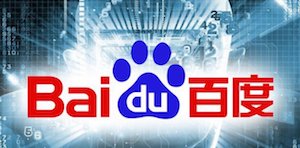 News outlets reported that Baidu has hired former Microsoft Executive Vice President Qu Li. Li, a noted expert in AI and the holder of 40 U.S. patents (according to Bloomberg), has been slated as group president and chief operating officer at Baidu.
News outlets reported that Baidu has hired former Microsoft Executive Vice President Qu Li. Li, a noted expert in AI and the holder of 40 U.S. patents (according to Bloomberg), has been slated as group president and chief operating officer at Baidu.
The announcement is significant, because it highlights the importance that top technology companies are continuing to place on expertise in artificial intelligence. Microsoft CEO Satya Nadella has repeatedly remarked about the importance AI plays in his vision for Microsoft’s future. Underscoring the commitment to AI, Microsoft just recently acquired AI and natural language startup Maluuba.
Qu Li will be joining renowned AI expert Andrew Ng at Baidu. What projects will these luminaries of AI be leading for the Chinese Internet and search engine giant? While there’s no way to predict the products or services that might result from their leadership, several areas of interest are already emerging.
Earlier this week Techcrunch announced that Baidu has opened an augmented reality lab and that the company is integrating augmented reality into search results and other products. Baidu has also begun public tests of their self-driving car technology. They also recently released their deep learning toolset PaddlePaddle on Github, following Google’s lead in the release of the TensorFlow suite.
Perhaps of more interest to those of us in the Intelligent Assistant space, Baidu demoed Xiaoyu Zaijia (“Little Fish”) at CES 2017. The smart home robot is apparently Baidu’s answer to Amazon’s Echo and Google’s Home and is aimed at the Chinese market, which continues to be underserved by the Baidu’s competitors.
 The company also announced the launch of an AI-powered conversational bot aimed at patients and doctors. Melody is a text-based conversational bot, available as an iOS or Android app, that users can engage with to to help identify their illness. The bot is trained on medical textbooks and other documentation and can ask clarifying questions about the user’s symptoms. Based on the information it receives, Melody can offer a diagnosis. Currently only available in English, the company has plans to provide an English version of the bot in the future.
The company also announced the launch of an AI-powered conversational bot aimed at patients and doctors. Melody is a text-based conversational bot, available as an iOS or Android app, that users can engage with to to help identify their illness. The bot is trained on medical textbooks and other documentation and can ask clarifying questions about the user’s symptoms. Based on the information it receives, Melody can offer a diagnosis. Currently only available in English, the company has plans to provide an English version of the bot in the future.
According to Baidu, the Melody chatbot is powered by the company’s deep learning and natural language processing technologies. As both voice and text-based bots gain traction and popularity, the demand for machine learning algorithms that make these bots smarter continues to grow. As a result, we’re likely to see corporations vie for top AI talent into the foreseeable future.
Categories: Conversational Intelligence, Intelligent Assistants, Articles, Mobile + Location

 Opus Research Welcomes Ian Jacobs as VP and Lead Analyst
Opus Research Welcomes Ian Jacobs as VP and Lead Analyst  United Airlines, TXU Energy, and Memorial Hermann Among Opus Research’s 2024 Conversational AI Award Winners
United Airlines, TXU Energy, and Memorial Hermann Among Opus Research’s 2024 Conversational AI Award Winners  Views from the NICE Analyst Summit: Introducing the Experience Continuum
Views from the NICE Analyst Summit: Introducing the Experience Continuum  Opus Research Announces 2023 Conversational AI Award Winners
Opus Research Announces 2023 Conversational AI Award Winners